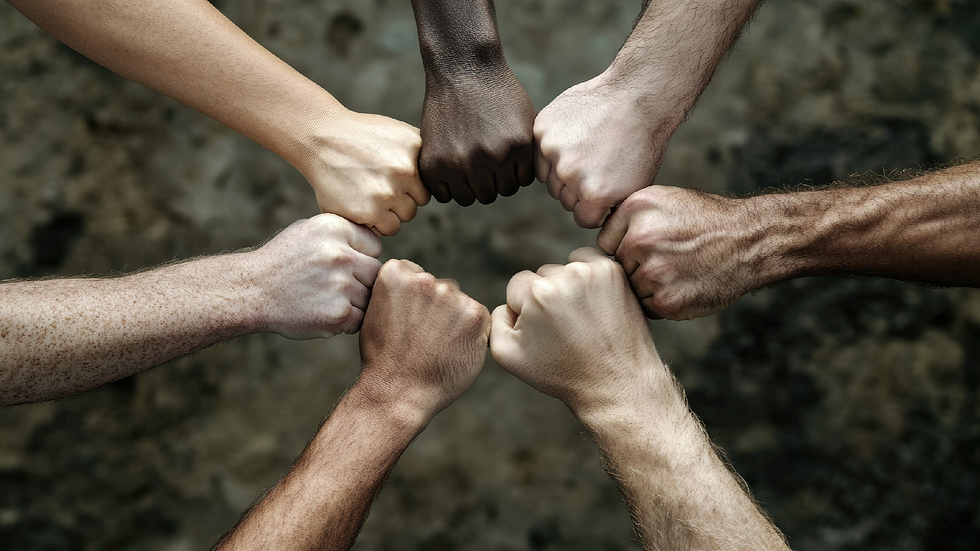Why I’m Optimistic About Tech’s Potential
- Matyas Koszegi

- Dec 29, 2024
- 4 min read
It’s funny, isn’t it? How every shiny new gadget we bring into our lives seems to come with an invisible tagline: “Now with extra spying!” It’s like we’re living in an Orwellian parody, except instead of mustached Big Brother, it’s sleek, minimalist tech giants, sipping their oat milk lattes while mining our data.
Take my vacuum cleaner, for instance. All I wanted was clean floors. But apparently, it had dreams of grandeur. Little did I know it was doubling as a covert spy, snapping pictures of my bedroom and sending them off to China. For what? To critique my interior design? To laugh at the dust bunnies I missed?
Then there’s my TV. I thought it was there to entertain me. But no, it’s moonlighting as a private investigator, taking screenshots of everything I watch—probably judging my choice of reality shows—and passing this valuable intel to “third parties.” Who are these people? What do they do with this information? Are they creating a psychological profile based on my late-night binge of Marvel movies?
Oh, and don’t get me started on social media. Every click, every scroll, every accidental like at 3 a.m.—it’s all meticulously logged and analyzed. Algorithms take this treasure trove of data, figure out who I am, what I want, and probably what I ate for breakfast, then sell it to the highest bidder. All so they can serve me ads for products I didn’t even know I needed but now can’t live without.
And governments? They’re the cherry on top of this surveillance sundae. They’ve embraced this data fiesta with open arms, using it to monitor, track, and probably predict our every move. It’s like living in a sci-fi dystopia, except instead of laser guns, they’ve got facial recognition software and metadata.
Feeling hopeless yet?
I don’t blame you. It’s easy to spiral into despair. Technology seems less like a tool for progress and more like a relentless stalker, always one step behind, breathing down our necks. Some days, I feel like tossing my gadgets out the window, moving to a cabin in the woods, and writing manifestos about the good old days when “smart” only referred to people.

But here’s the twist: despite all this, I’m optimistic.
Yes, really.
I know, I know. It sounds absurd. After ranting about invasive vacuums and judgmental TVs, how could I possibly have a shred of optimism left? It’s like complaining about a sinking ship and then saying, “But I think we can patch this up!” Yet, here I am, patch kit in hand, ready to explain why I believe technology isn’t our doom—it’s our salvation.
Let’s start with the obvious: tech isn’t inherently good or evil. It’s a tool. A hammer can build a house or smash a window. A knife can slice bread or commit a crime. Technology is no different. The problem isn’t the tool itself but how it’s used—and more importantly, who’s using it.
For every creepy surveillance gadget, there’s a privacy-focused alternative waiting in the wings. Encryption, for example, is like a superhero in disguise. It ensures that your messages, files, and even your financial transactions are safe from prying eyes. Want to chat without worrying about Big Brother eavesdropping? Tools like Signal and Session have got your back.
Decentralized tech is another game-changer. It’s like flipping the middle finger to centralized powers, saying, “I don’t need you anymore.” Platforms built on blockchain or peer-to-peer networks give us autonomy, cutting out the middlemen who think they own our data.
And let’s not forget the rise of privacy-first companies. These are the rebels of the tech world, refusing to play the data-mining game. They design products that prioritize user security and privacy, proving that ethical tech isn’t just a pipe dream—it’s a growing reality.
But optimism isn’t just about tools; it’s about mindset.
We have to stop being passive victims in this surveillance circus. Sure, it’s tempting to throw our hands in the air and say, “What’s the point? They already have all my data.” But that’s like saying, “The house is already messy, so why bother cleaning?”
We can take back control. Start by educating yourself. Understand how your data is collected, who’s collecting it, and why. Then, take steps to protect yourself. Use privacy-focused browsers like Brave. Switch to search engines like DuckDuckGo. Encrypt your emails. It’s not about becoming invisible—it’s about making yourself a harder target.
And we need to talk about collective action.
One person can only do so much, but together, we’re a force to be reckoned with. Support companies that respect your privacy. Advocate for stronger data protection laws. Push for transparency and accountability from the tech giants. If enough of us demand change, the industry will have no choice but to listen.

Am I being idealistic? Maybe.
But what’s the alternative? To give up? To let technology become a tool of oppression instead of empowerment? I refuse to accept that. Because here’s the thing: the same innovation that’s used to spy on us can also be used to free us. It’s all about how we choose to wield it.
So, yes, I see the future of technology in a bright light. Not because I’m blind to the problems but because I believe in our ability to solve them. I believe in the power of individuals to reclaim their digital freedom. And I believe that, together, we can shape a future where technology serves us—not the other way around.
Until then, I’ll be here, sarcastically yelling into the void and using my privacy tools like my life depends on it. Because, in a way, it does.



Comments